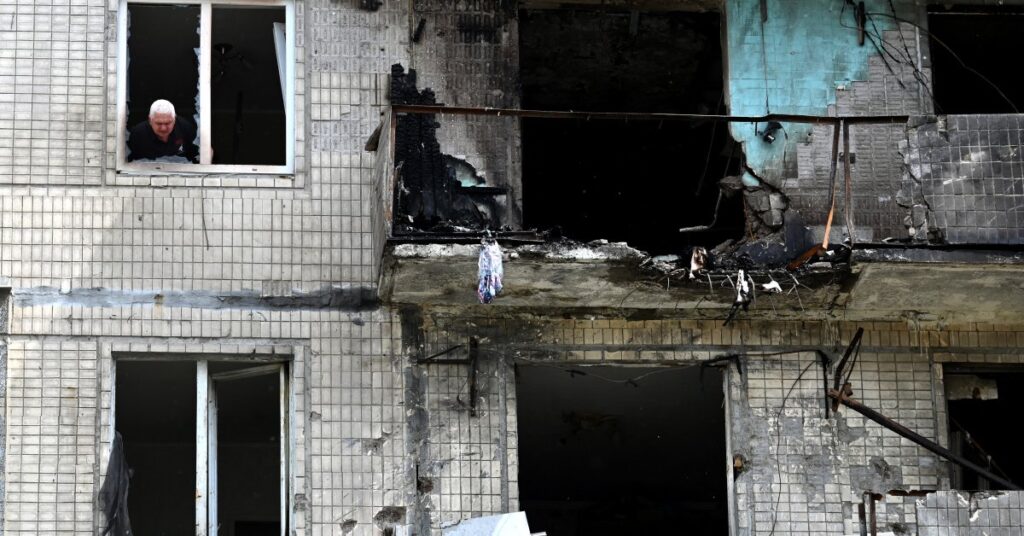Germany has given Ukraine the green light to strike targets inside Russia using long-range weapons supplied by Berlin, in a decision that signals a notable hardening of Western resolve as the war grinds on.
The shift, announced by Chancellor Friedrich Merz, lifts longstanding restrictions on the range of German-delivered missiles and aligns Berlin with some of Kyiv’s other allies, including the UK and France.
“We will do everything in our power to continue supporting Ukraine,” Merz said in a statement on social media platform X on Monday.
Read more: Ukraine’s Plan to Survive Trump
While it remains unclear whether Germany will be providing Ukraine specifically with Taurus missiles, as Kyiv previously requested, Merz confirmed that Ukrainian forces are no longer bound by geographic limits when using German systems. “Ukraine can now also defend itself by attacking military positions in Russia,” the Chancellor said.
The Kremlin condemned the move. Spokesperson Dmitry Peskov told state media it was “a rather dangerous decision” and warned it would undermine ongoing efforts to reach a political settlement.
“If such decisions are made, they will absolutely go against our aspirations to reach a political settlement and the efforts being made within the framework of the settlement,” he said.
Read more: The Meaning of Germany’s Dramatic Rearmament
The shift marks a departure from Merz’s predecessor, Olaf Scholz, who had resisted sending long-range weaponry to Ukraine, citing fears of Russian escalation. In a visit to Kyiv in December last year, Scholz reiterated his refusal, even as Germany unveiled a military aid package worth €650 million.
By contrast, Merz sought to emphasize unity among Ukraine’s Western allies. “There are no longer any range restrictions on weapons delivered to Ukraine, neither by the British nor by the French nor by us nor by the Americans,” the Chancellor highlighted at a press conference on Monday.
A government official later told Reuters that the announcement was not a change in policy, since Merz’s administration, in office since May 6, had never imposed such limits.
Ukrainian President Volodymyr Zelensky is expected to visit Berlin for a meeting with Merz on Wednesday, May 28.
While Berlin’s position has now shifted, the U.S. is yet to confirm whether it has lifted all restrictions on long-range missile supplies to Ukraine. According to the Kyiv Post, two senior officials said that whilst some restrictions were still in place, President Donald Trump was “seriously considering” lifting these. The report said that these were under review by Trump, and that he “believes that the current status quo does not serve our common interests of bringing Russia to the [negotiation] table.”
Read more: Trump Discovers the War in Ukraine May Be Too Complicated to Fix
Former President Joe Biden had lifted some restrictions on long-range missiles. In November 2024, less than two weeks after he lost the presidential race to Trump, Biden authorized the use of ATACMS missiles in strikes on Russian territory. Ukraine has since used these weapons to hit targets in the Bryansk region and other parts of western Russia.
Chancellor Merz’s decision to lift similar restrictions could bolster Ukraine’s ability to strike deep inside Russian territory. In November, the Ukrainian military used British long-range Storm Shadow missiles. Military sources told Sky News that strikes using the missiles were “very successful,” hitting targets in the Kursk region.
The announcement from Merz comes at a moment of heightened uncertainty over a possible ceasefire between Russia and Ukraine. Last week, President Trump held what he called “excellent” calls with both Vladimir Putin and Volodymyr Zelensky in which he said that negotiations between the two countries will begin immediately.
But within days, Russia launched its largest attack on its neighbor since the start of the war, killing 12 people, including three children in a barrage of 367 drones and missiles.
Trump, posting on TruthSocial, condemned the attack as “needlessly killing a lot of people” and called Putin “absolutely crazy.” The President also criticized Zelensky, saying that the Ukrainian President “is doing his country no favors by talking the way he does. Everything out of his mouth causes problems, I don’t like it, and it better stop.”
Read the full article here


